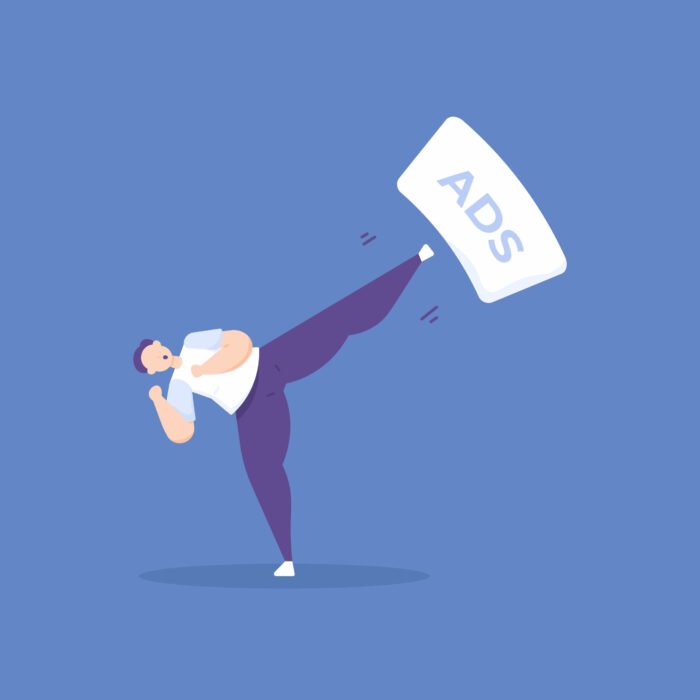Pop-up ads can be annoying for many internet users. As soon as you open a web page, these ads pop up and cover content, disrupt your browsing experience, or even download malware on your device without consent. Fortunately, there are ways to stop pop-up ads from appearing while you browse. This complete guide will discuss what pop-up ads are, why they can be problematic, and actionable tips to prevent them in your web browser or device. Check for How to Stop Pop-up ads- complete Guide, below-
What are Pop-up Ads?
Pop-up ads, also known as pop-ups or pop unders, are advertising windows that automatically open in a new browser window when you go to certain web pages. They “pop up” overlays over the current content, either in the center of the screen or in a new browser tab or window. The goal is to capture attention and get internet users to click, but they often end up being disruptive and annoying.
Some common examples include:
- Promotional offers or sales pitches trying to get you to buy something
- Notifications to subscribe to a newsletter
- Advertisements with animations or sound effects
- Dialog boxes with surveys or questionnaires
Pop-up ads can range from legitimate businesses marketing products, to outright scams trying to sell questionable products or services. The most problematic ones download malware or try to extract personal information without getting explicit consent first.
Why Pop-up Ads are Problematic
There are a few reasons why pop-up ads tend to frustrate internet users:
Disrupt Browsing Experience: Pop-ups can bombard you with ads and clutter your screen when you’re trying to read an article or view other content. This makes for an unpleasant browsing experience.
Hide Important Content: Some pop-ups literally overlay the content you actually want to see, blocking you from viewing the information underneath. Users then have to hunt to close the pop-ups.
Increase Data and Battery Usage: Loading multiple pop-up ads can increase data usage and drain battery life more quickly, especially on mobile devices. These ads use up processing power.
Security/Privacy Risks: Rogue pop-up ads might install malware or spyware without the user agreeing to it. Click fraud also tricks users into clicking.
Difficult to Close: Pop-ups sometimes lack obvious “close” buttons, or use sneaky tactics that make them hard to close. You end up playing an endless game of Whack-a-Mole.
How to Stop Pop-Up Ads in Web Browsers?
Luckily, every major web browser has ways to block or stop pop-up ads from interfering with your browsing experience. Here are tips for different browsers:
- Go to Settings > Privacy & Security > Site Settings > Pop-ups and Redirects
- Toggle “Blocked” on to prevent sites from showing pop-ups
- You can also report abusive site pop-ups
Mozilla Firefox:
- Click the Menu button > Options > Privacy & Security
- Check the box next to “Block pop-up windows”
- Customize exceptions for sites you trust
Microsoft Edge:
- Go to Settings > Cookies and Site Permissions
- Turn “Block” on for Pop-ups and Redirects
- Add problematic sites to restricted list
Apple Safari:
- Select Safari > Preferences > Websites
- Choose “When visiting other websites”
- Check box for “Block pop-up windows”
- Customize options per website
The steps may vary slightly for different browser versions, but the menus should offer pop-up blocking options. Just enable this feature and the browser will automatically block most pop-ups.
How to Stop Pop-Ups on Mobile Devices?
Mobile devices like smartphones and tablets also have options to block pop-ups in their settings or apps:
Apple iOS:
- Open Settings > Safari
- Turn on “Block Pop-ups” and “Fraudulent Website Warning”
Android OS:
- Use Chrome app and turn on pop-up blocker
- Or install free ad blocking apps like AdBlock Plus
Additionally, you can install reputable pop-up blocker apps from app stores on iPhone or Android devices. Perform research to avoid fake ad blockers though. Legitimate apps can run quietly in the background and filter out pop-up ads across the operating system.
Extra Tips to Block Pop-Up Ads
Besides built-in browser and device settings, here are bonus tips to stop pop-ups:
- Install ad blocking browser extensions like uBlock Origin or AdBlock Plus
- Use a pop-up blocker program on computers like Popup Blocker Pro
- Subscribe to premium ad-free services like Spotify Premium or YouTube Premium
- Use a proxy site to access web pages and filter out pop-ups
- Update browsers and devices regularly for improved security
- Clear out cookies, caches, and histories periodically
- Exercise caution before clicking on unknown links or downloads
The more layers of protection from pop-up ads, the better. Combine browser settings with other solutions for optimal blocking based on your browsing habits.
Conclusion
Intrusive pop-up ads can certainly make browsing the internet a hassle. However, every major web browser provides the ability to block pop-ups. You can stop most unwanted ads from interrupting your reading or viewing experience. For total protection, install supplemental software tools, use pop-up blocking browser extensions, access ad-free services, and exercise general caution with downloads. With a few simple settings adjustments and extra tools enabled, you can enjoy peaceful uninterrupted browsing once again

